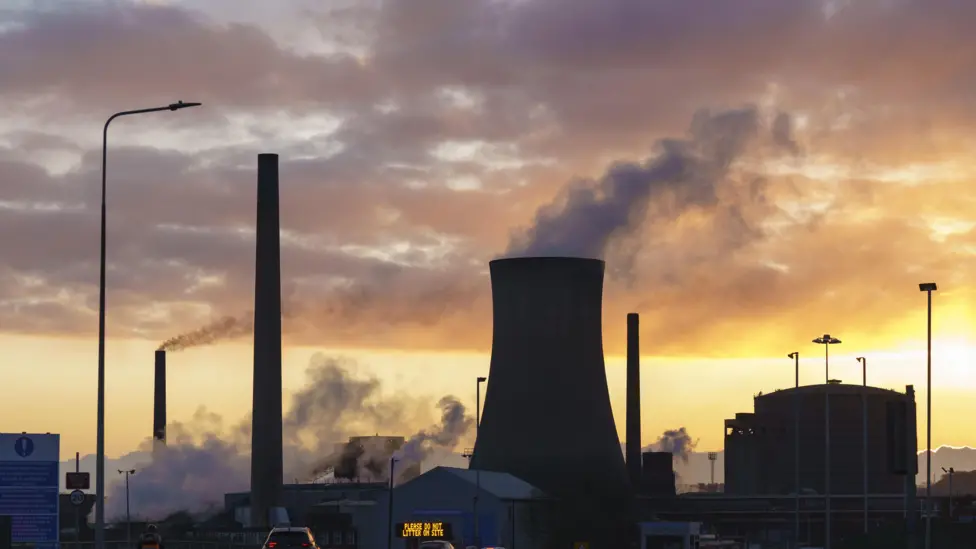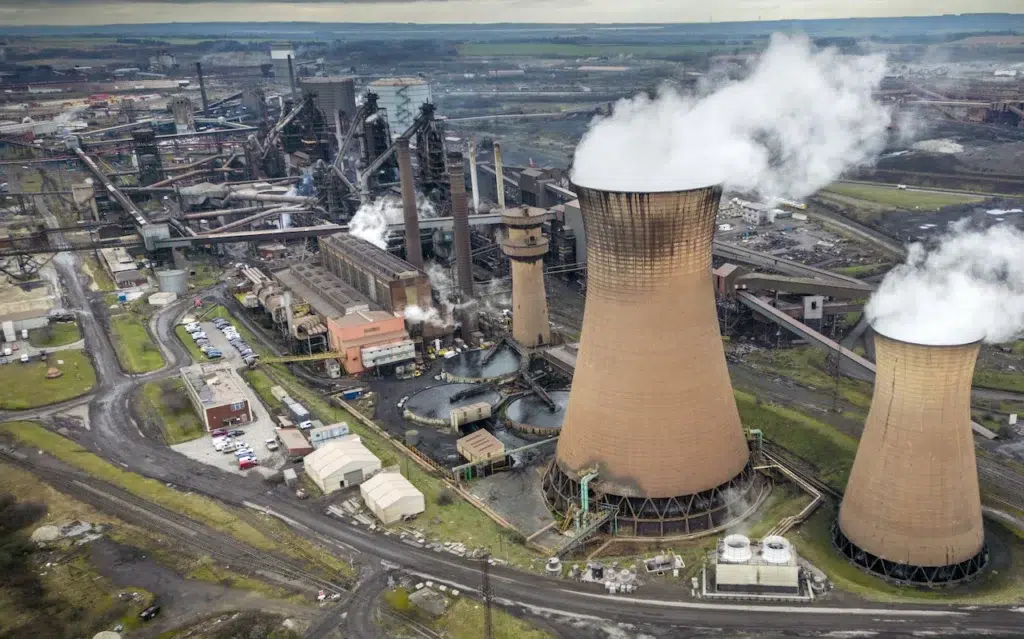British Steel’s Scunthorpe plant stands on the brink of shutdown, with warnings that blast furnaces could run out of essential raw materials within days. The plant’s Chinese owner, Jingye Group, has reportedly cancelled orders for iron ore, coking coal, and other materials needed to make virgin steel, triggering fears of imminent closure. Industry experts suggest the plant could effectively close within 10 days, putting 2,700 jobs at risk and potentially leaving Britain as the only G7 nation without the capacity to produce new steel.

Government’s Last-Ditch Efforts
The UK government is scrambling to prevent a shutdown that would devastate the steel industry. Industry Minister Sarah Jones confirmed that talks took place with Jingye Group last Friday in what appears to be a final attempt to keep the company in private hands. “No options are off the table,” Jones told Parliament during an urgent question session. “We need to make sure we are protecting the country in ways that we need to… We need to make sure we have steel production in the UK.”
National Security Concerns
The strategic importance of domestic steel production has become a central theme in the government’s response. Ministers have emphasised that retaining steelmaking capability is vital for national security, with The Telegraph revealing that the government is exploring the use of terror laws to nationalise Britain’s last steel blast furnaces on national security grounds. The loss of this production capacity would be unprecedented among G7 nations and could leave the UK vulnerable to supply chain disruptions.
Prime Minister’s Position
Prime Minister Sir Keir Starmer has reinforced the government’s commitment to the steel industry, describing it as “part of our heritage.” Speaking after unveiling support for the car industry, Starmer highlighted the expected increase in steel demand: “Our growth plans are going to require more steel, and therefore the steel demand is going to go up, not down, and that’s why we must support our steel industry.”
Jingye’s Financial Struggles
Jingye Group, which has owned British Steel since 2020, claims to have invested more than £1.2 billion to maintain operations while suffering daily financial losses of approximately £700,000. The company has stated that its two blast furnaces in Scunthorpe are “no longer financially sustainable,” creating an impasse with the government over the future direction of the business.
Failed Negotiations
The government previously offered £500 million in support to partly fund a transition from blast furnaces to electric arc furnaces, a more environmentally friendly technology. However, this proposal was rejected by Jingye Group, contributing to the current deadlock. Jones insisted during her Parliamentary address that the plant’s closure was “far from a done deal,” with a private sector solution still possible, emphasizing: “We do not want the blast furnaces to shut.”
Supply Chain Implications
The potential closure threatens critical infrastructure projects across the UK. British Steel is a major supplier to construction firms and Network Rail, which has already begun stockpiling metal in anticipation of a crisis. Network Rail – responsible for all rail infrastructure – sources 95% of its steel from the Scunthorpe blast furnaces, with the remainder imported from Europe. Any disruption would have far-reaching consequences for the nation’s transport network.

Trade Protection Measures
Beyond the immediate crisis, the government is taking steps to protect the broader UK steel industry from international pressures. Business Secretary Jonathan Reynolds held talks with the Trade Remedies Authority (TRA) on Monday to prevent cheap Chinese steel being dumped on British shores as a result of Donald Trump’s 25% import tax. The TRA, established post-Brexit, is tasked with protecting UK industry from unfair trade practices.
Political Dimensions
The crisis at British Steel has taken on political significance, particularly in the context of the upcoming Lincolnshire mayoral election on May 1. Reform UK leader Nigel Farage and his deputy Richard Tice visited the Scunthorpe works, with Farage dramatically claiming there were “3 days to save British Steel” and advocating for public ownership. Conservative MP Martin Vickers told Parliament that “nationalisation temporarily” could “provide an opportunity to rebuild the industry.”
Chancellor’s Reassurances
Chancellor Rachel Reeves has sought to reassure workers at the Lincolnshire plant about the government’s commitment. In discussions with trade unions over the weekend, Reeves reportedly emphasized her awareness of the steel industry’s strategic importance to the UK. These conversations highlight the high-level government engagement with the crisis.
The Path Forward
The Business Minister’s written statement on Tuesday outlined the government’s priorities: “respecting workers, safeguarding jobs, and retaining steelmaking.” While maintaining that “the best way forward is for British Steel to continue as a commercially-run business with private investment,” the statement concluded with a firm position: “However, no options are off the table. The government remains resolute in our desire to secure a long-term future for the Scunthorpe steelworks.”
Industry Transformation Challenges
The crisis at British Steel reflects wider challenges facing traditional heavy industries as they confront environmental regulations, international competition, and the need for technological transformation. The standoff between Jingye Group and the UK government over electric arc furnaces highlights the complex balance between maintaining current production capabilities and investing in sustainable future technologies.
As the clock ticks down on the Scunthorpe blast furnaces, the government faces a momentous decision that will shape the future of British steel production. With nationalisation now a serious consideration, the coming days could determine whether the UK maintains its capability to produce virgin steel or becomes reliant on imports for this strategically vital material.
